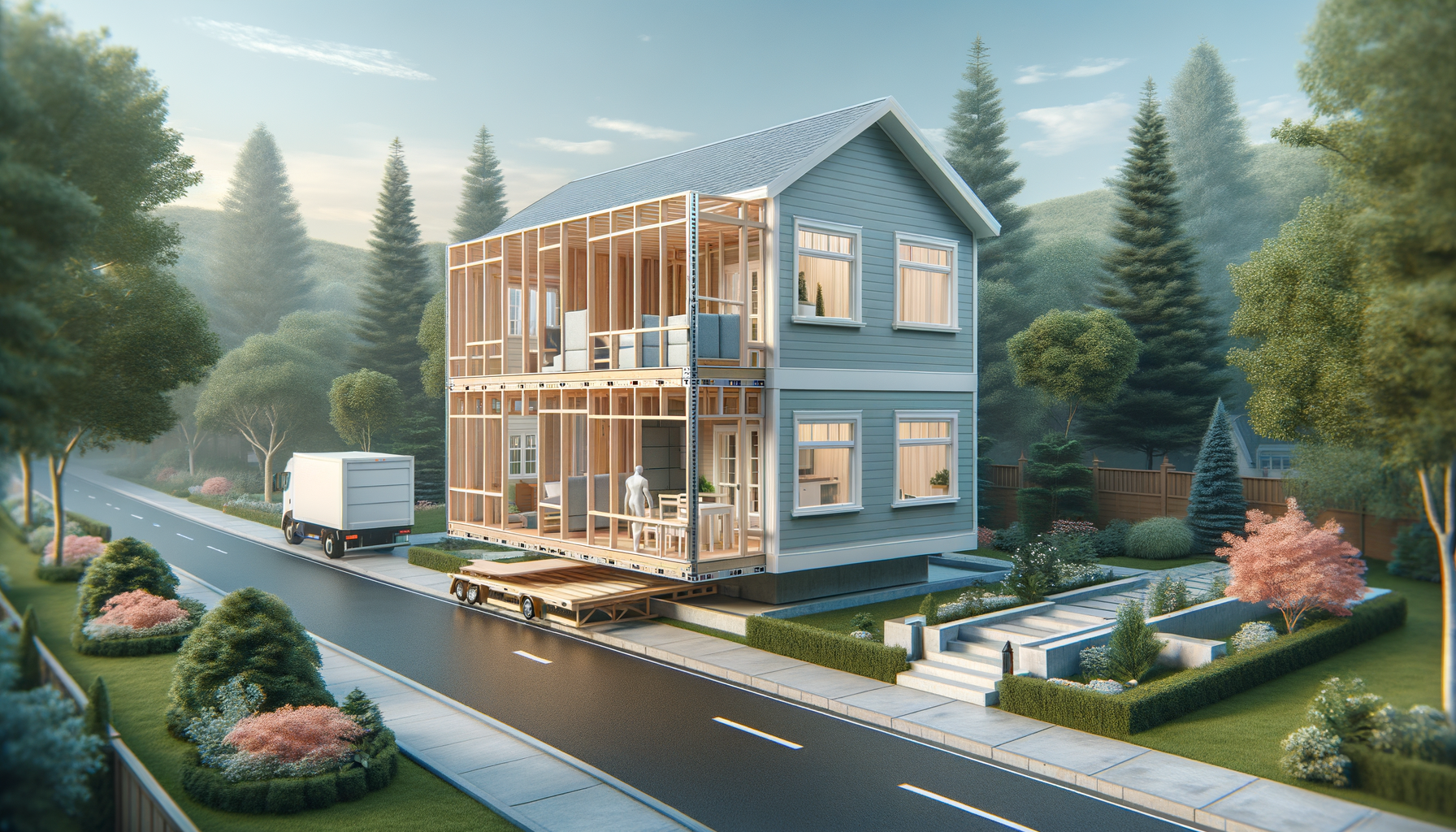Understanding Modular Homes
Modular homes, often referred to as prefabricated homes, are constructed in sections in a factory setting before being transported to their final location for assembly. Unlike traditional homes built entirely on-site, modular homes offer a unique blend of efficiency and flexibility. This construction method allows for precise manufacturing under controlled conditions, minimizing the impact of weather delays and ensuring consistent quality.
One of the significant advantages of modular homes is their customization potential. Buyers can choose from a variety of layouts, finishes, and features, tailoring their home to meet specific needs and preferences. The design options are vast, ranging from modern and minimalist to traditional and cozy, ensuring that every homeowner can find a style that resonates with them.
Additionally, modular homes are built to the same codes and standards as site-built homes. They must adhere to local building regulations, ensuring they are safe and durable. This compliance is crucial for first-time buyers who might be concerned about the longevity and safety of their investment.
The Cost-Effectiveness of Modular Homes
Cost is a critical factor for many first-time buyers, and modular homes offer a compelling financial advantage. Due to the streamlined construction process, modular homes can be more cost-effective than traditional site-built homes. The controlled environment of a factory reduces waste and labor costs, translating to savings for the buyer.
Moreover, the time required to construct a modular home is typically shorter, which can further reduce costs associated with construction loans and temporary housing. This efficiency does not compromise quality, as modular homes are built with the same materials and standards as their site-built counterparts.
For those concerned about long-term value, modular homes can appreciate similarly to traditional homes, provided they are well-maintained and located in a desirable area. This potential for appreciation makes them an attractive option for first-time buyers looking to invest in their future.
Sustainability and Environmental Impact
In today’s environmentally conscious world, the sustainability of a home is a significant consideration. Modular homes are often lauded for their eco-friendly construction process. The factory setting allows for precise material use, reducing waste significantly compared to traditional building methods.
Many modular home manufacturers are committed to using sustainable materials and energy-efficient designs. Features such as solar panels, energy-efficient windows, and high-quality insulation are often available, helping homeowners reduce their carbon footprint and energy bills.
The reduced construction time also means less environmental disruption at the building site, preserving the natural landscape and minimizing the impact on local ecosystems. For first-time buyers who prioritize sustainability, modular homes present an appealing option.
Financing and Buying a Modular Home
Financing a modular home is similar to financing a traditional home, though there are some differences to consider. Many lenders offer mortgages for modular homes, and the process typically involves securing a construction loan followed by a traditional mortgage upon completion.
It’s essential for buyers to work with lenders familiar with modular home financing to ensure a smooth transaction. These lenders can provide valuable insights and guide buyers through the process, helping them understand the nuances of modular home loans.
First-time buyers should also consider the costs associated with land purchase, site preparation, and utility connections. These expenses can vary significantly depending on the location and specific requirements of the site. Proper planning and budgeting are crucial to ensure the project stays on track financially.
The Future of Modular Homes
As technology and design continue to evolve, the future of modular homes looks promising. Innovations in building materials and construction techniques are continuously improving the quality and efficiency of modular homes. Smart home technology is increasingly being integrated into modular designs, offering homeowners enhanced convenience and energy management.
The growing demand for affordable housing solutions is also driving interest in modular homes. As urban areas become more crowded and housing prices rise, modular homes provide a viable alternative for those seeking affordable, high-quality living spaces.
For first-time buyers, the flexibility, cost-effectiveness, and sustainability of modular homes make them a compelling choice. As the industry continues to innovate and expand, modular homes are likely to become an increasingly popular option for those entering the housing market.




Leave a Reply